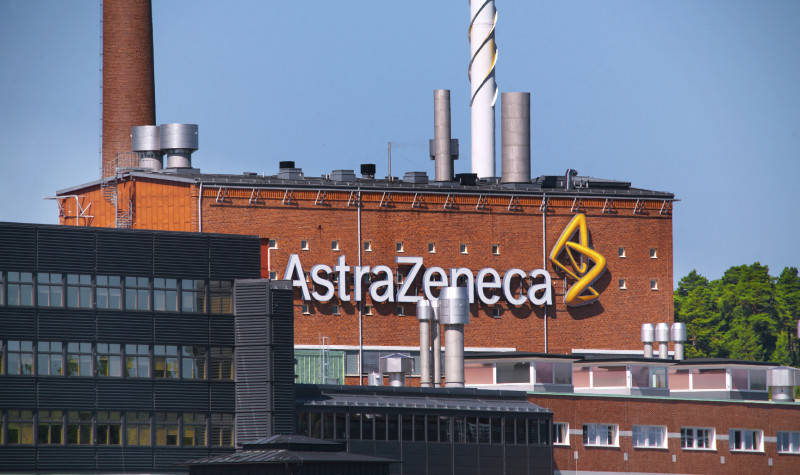AstraZeneca: Back in the Takeover Crosshairs?

Bad news at Phase III: a potential buy on share price weakness. Following Post Brexit sterling weakness, foreign takeover prospects prevent it from being the obvious sell it might otherwise be. The sterling value of the abortive Pfizer bid at 5,500p is now, after devaluation of the pound, worth a notional 6,000p.
Astra Zeneca looks, on the face of things, ripe enough to fall. The shares at 5,196p are full of profits and the news is that its cancer therapy Selumetinib (someone should pay a lyricist to invent some memorable names for pharmaceutical drugs) has failed in the final phase III stage of the long and costly regulatory approval process.
This looks a classic example of when a pharmaceutical share turns around and heads south. Pharmaceutical company shares are as particularly susceptible to bad news as they are to good news, simply because a single drug under development can take years to develop under regulatory inspection and represent a mighty sum in investment cost. That of course is particularly so when the development in question is from its core therapy area of cancer treatment and in Phase III, like Selumetinib.
The disappointment will be magnified by the fact that at 5,196p the share price is at a historic peak despite all the challenges, including a dividend uncovered by earnings and thus paid out of capital not profits. The Astra share price has never been so high, even during the time of the unsuccessful bid from the acquisitive US pharma company Pfizer at 5,500p.
At the current price, the shares have clocked up a capital gain of over 20 per cent in the last year. Since 24th June (this year) when the shares were reportedly 3,680p, the share price has appreciated by a rocket fuelled 41 per cent. Technically, the share price would seem vulnerable to a setback. As the good book of old market wisdom tells us, no share price goes up in a straight line forever.
Prior to the recent elevation, the Astra share price had been broadly moving sideways within an approximate trading range of 3,800p to 4,600p. I would suggest that given the rate of elevation in the last few weeks and the nature of the news (an important Phase III trial drug hitting the regulatory barrier), the share price is logically destined to return to somewhere in that trading range. Given the earlier and well established downtrend in the share price, somewhere closer to 3,800p seems a not unreasonable possibility given the lack of support from here. If in doubt consult your friendly local technical analyst for witchcraft wisdom.
The big support for the share price now is the historic and estimated dividend yield (on a 5,196p share price) of 4 per cent. But remember that this dividend is only covered 1.45 times by estimated market consensus earnings for this year. Also note that it is being maintained at a time of cash constraints arising from the costs associated with recent acquisitions and patent expirations, of which the anti cholesterol drug Crestor is an example, having just gone off patent in the US where its sales have recently declined by a reported two per cent. Although such events are long foreseen and taken into account when planning future dividend policy, the failure of a major therapy like Selumetinib may not be. That, presumably, will also unbalance planned for future cash flows on the assumption that wings of a prayer are not automatically banned from the hopeful expectations of company cash planners. In any event, the Phase III failure does cast a new shadow of uncertainty.
Having said that, a glance at the last report shows that sales of approved cancer and diabetes drugs (these two therapy areas constitute the ‘growth platform’ of the company) rose 7 per cent in the first half of the year and now represent a reported 60 per cent of total product sales. There is also a fruitful pipeline of therapies in development with a dozen regulatory announcements due over the coming year.
The positive ten per cent devaluation of the pound against the dollar, gives no immediate comprehensive translation cost benefit because Astra accounts and reports in dollars. However, there will clearly be some financial advantage to the UK operations with costs in sterling.
Assuming that the failed drug is merely one of a number of equally important developments, the actual longer consequences of its failure are probably limited. The shares trade on an estimated 17 times consensus earnings with a prospective dividend yield of 4 per cent.
My final conclusion is that the shares are due a bit of a fall and a rise in the dividend yield. However, you can bet your bottom dollar that devalued sterling takeover prospects are not far from the caterpillar instincts of investment banking takeover merchants. The sterling value of the old Pfizer bid at 5,500p is now, after the devaluation of the pound, worth an estimated notional 6,000p.
Comments (0)